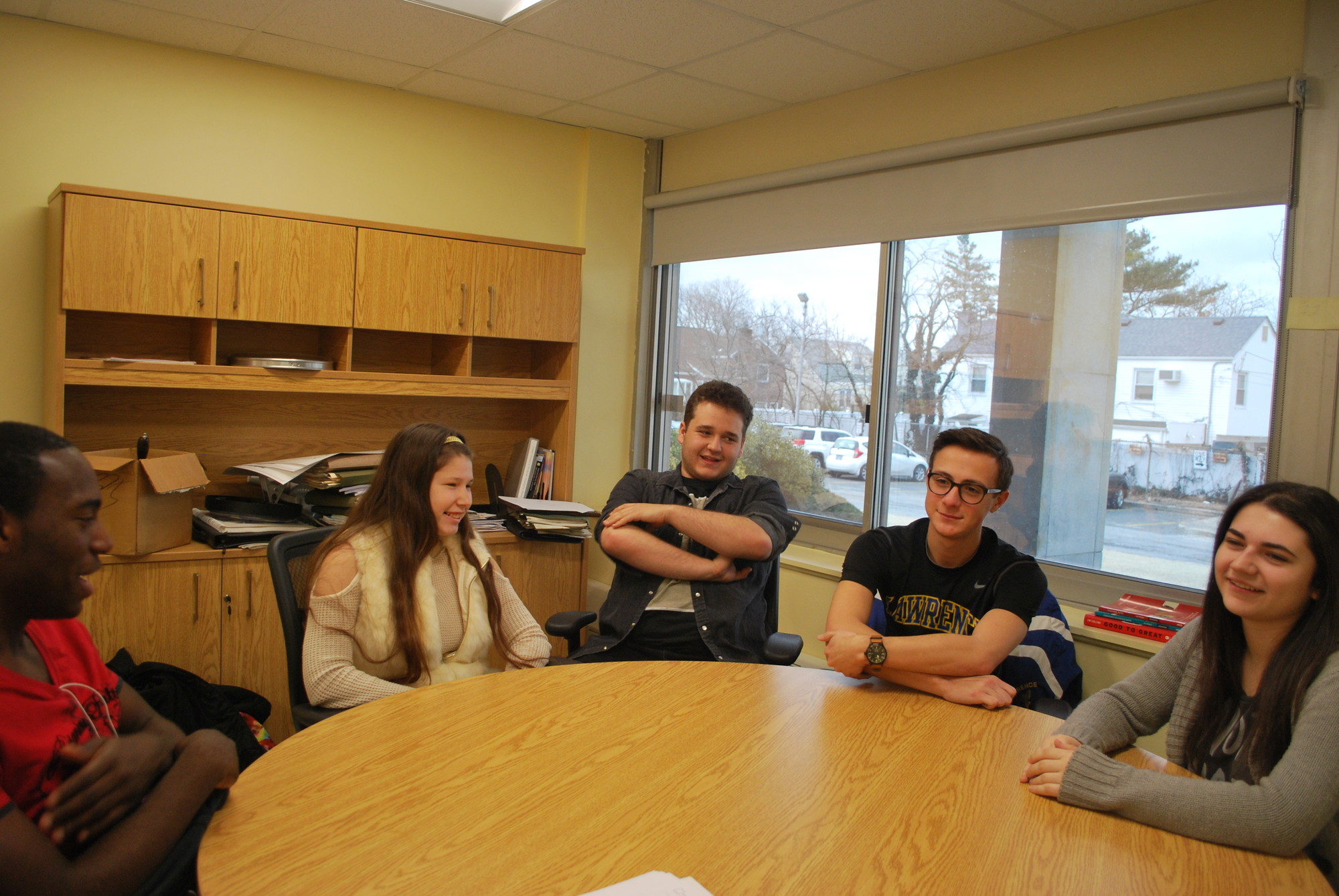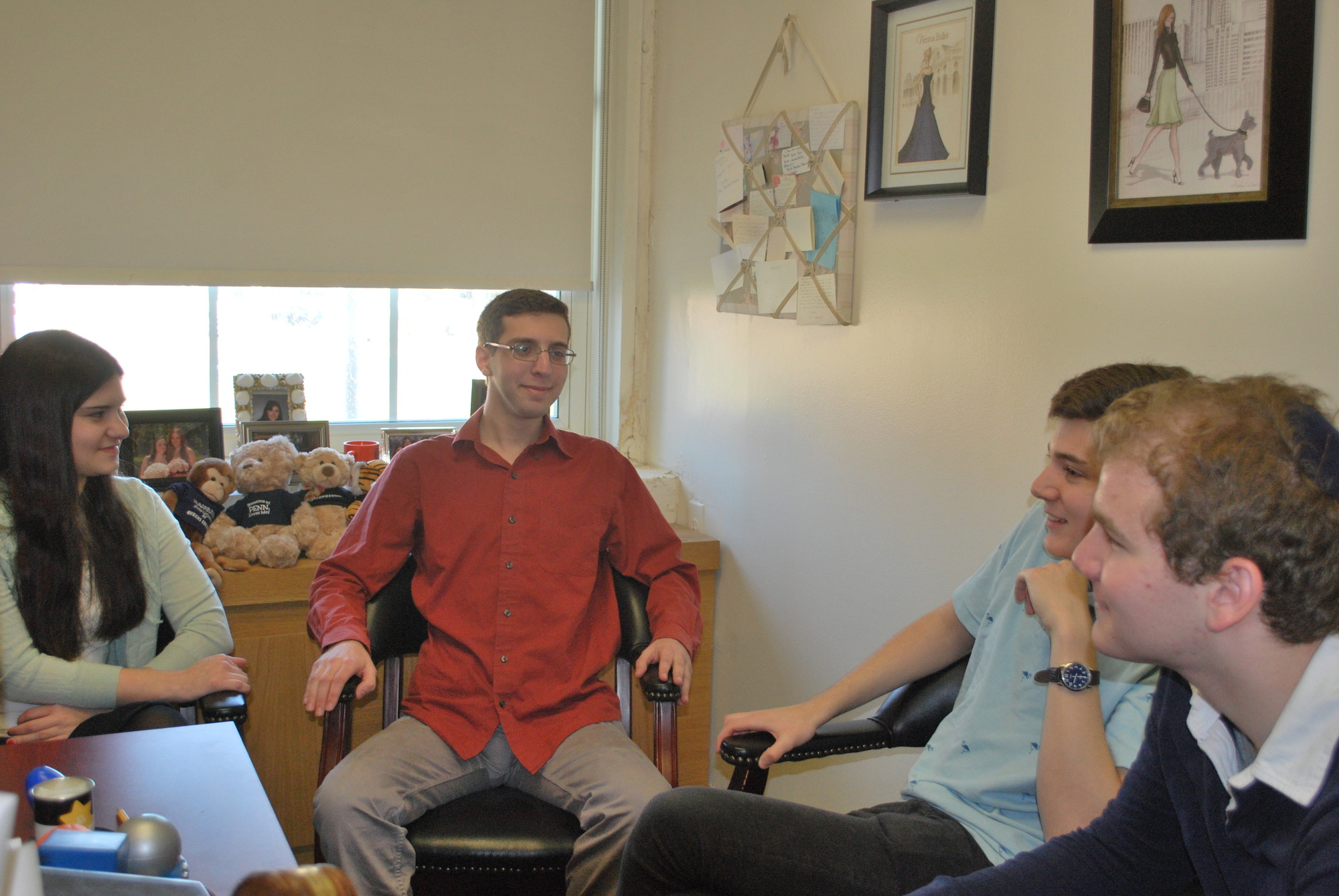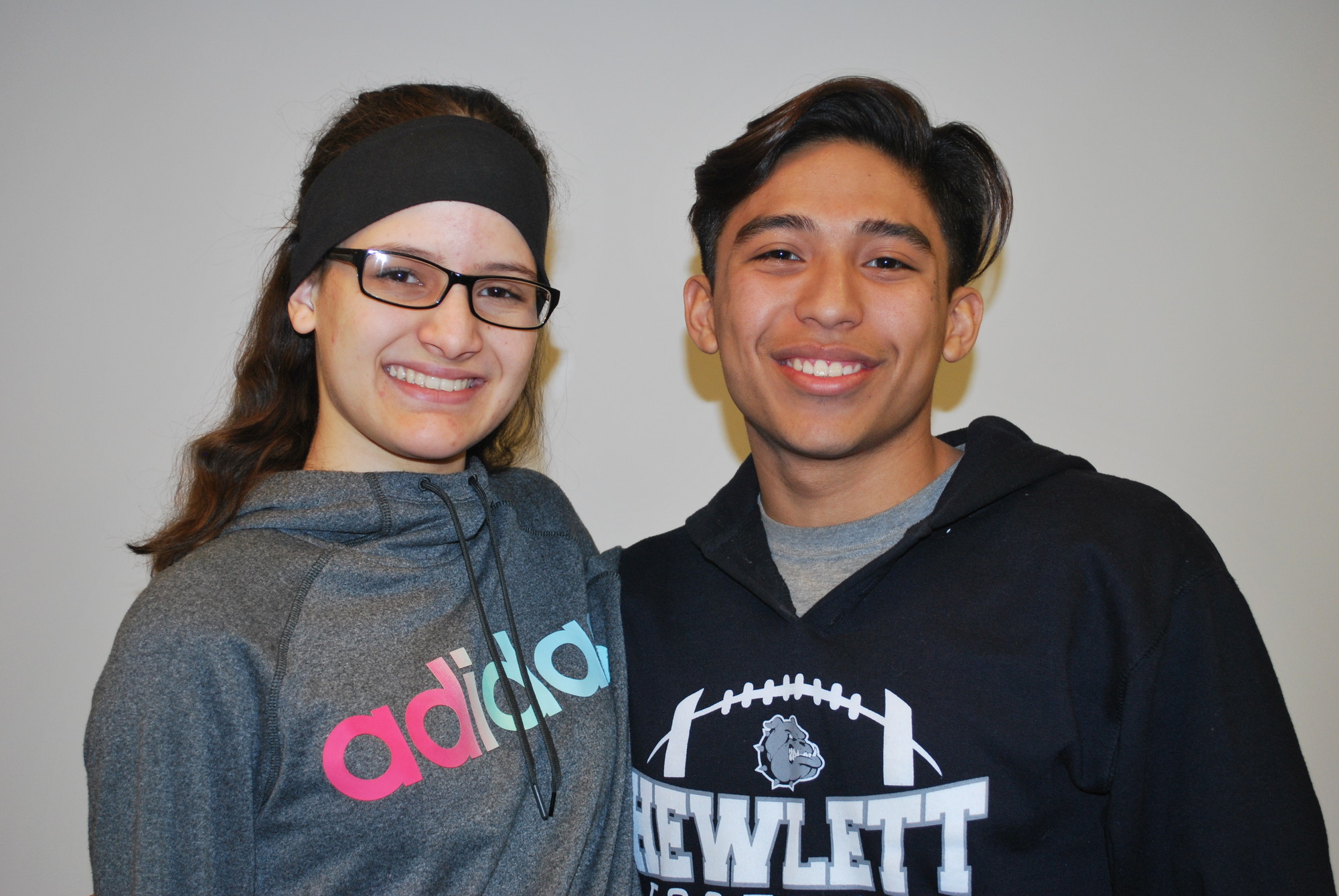First-time voters speak out
Five Towns high school students discuss the presidential race
Ever since 1971, when the 26th amendment to the U.S. Constitution lowered the voting age from 21 to 18, the approximately three million young voters (ages 18 to 24) have been considered a powerful constituency, if they came out to cast ballots.
Based on U.S. Census numbers, this demographic has been less engaged in presidential races since 1972, when just under 50 percent of those voters went to polls infused by their new privilege and Democratic presidential candidate George McGovern’s campaign.
In 2012, the number dropped to 38 percent. There have been spikes. In 1992, the percent increased to 42.8 percent compared to the previous presidential election when about 35 percent voted. The number rose to 44.3 percent in 2008, the year another Democratic presidential candidate, Barack Obama, created a spark among young people similar to what Democrat Bernie Sanders’ campaign has done during this presidential campaign
The New York state presidential primary on April 19 matters to both Republicans and Democrats. The Herald spoke to several Five Towns students who will be first-time voters to gauge their thinking on the candidates. As of press time, Hillary Clinton leads Sanders 1,712 to 1,011 in the delegate count, with 2,383 needed to win the Democratic presidential nomination. Donald Trump is ahead of his closest Republican rival Ted Cruz, 736 to 463. A GOP candidate needs 1,237 delegates to gain the party’s nomination.
Several of the students, all seniors, at the Hebrew Academy of the Five Towns and Rockaway (HAFTR), Hewlett and Lawrence high schools, said that they have an interest in politics, usually sparked by their parents, and now that awareness is heightened by classes they are taking and that they are eligible to vote for the first time this year.
“I’ve always had an interest in politics, it’s my sports,” said Brandon Brumm, president of Lawrence High’s Student Government Association. “Especially this election, it is exciting with the media and the way it’s being covered.”
Taking an economics course and being part of two government classes has triggered Hewlett student Marcelis Taveras’s interest in the presidential race. “Definitely, I’m more into it this year,” said Taveras, 18, who came from the Dominican Republic to the U.S. with her family when 2.“The “Participating in Government” class and economics has given us the basics.”
Considering the use of sports metaphors to describe political goings on, it’s not surprising that HAFTR student Judah Weinerman picked up on politics as one of three topics he constantly read about when he was younger, along with two sports.
“I had an interest in politics since elementary school, reading newspapers, now the Times,” he said. “As a kid, I read about basketball, politics and football.”
In conducting her research, Lawrence senior Jaime Oberstein is looking for a candidate who will boost the economy. “Our economy is very bad there are not a lot of jobs,” she said. “I would vote Republican. I don’t know if we need another four years of a Democrat.”
Sifting through the choices
Younger voters defined as the millennials, people born between 1982 and 2004, have been attracted to Sanders’ platform, which is based on correcting income and wealth inequality, making college tuition and debt free and eliminating large money contributions to political campaigns that tilt the playing field toward the rich and powerful.
Dahlia Forte said unequivocally she is “felling the Bern.” “Bernie [Sanders] is the right candidate who will represent the people,” said the Lawrence student, who admitted that “my beliefs tend to be pretty liberal.” “Who better to the tax the 1 percent, than Bernie?” The 1 percent refers to the richest people in the U.S.
Another Lawrence senior, Frank Gargano, who said he will vote in the primary, is considering sanders. “He has the soundest ideas taking a stand against big business and decreasing the cost of college,” Gargano said.
Classmate Demarino Hussey said he was deciding between Sanders and Clinton. “This race is special because you could have the first female president,” he said. “Hillary and Bernie both have some good points. I have to do more research.”
Kiana Nunez was still sifting through the candidates’ proposed policies, but despite Trump’s anti-immigration push, the Lawrence senior said. “The immigration should be reformed and the process should be made easier.”
Hewlett senior Guillermo Soto said if it is Clinton vs. Trump he will side with the Donald. “He will lower tax rates, treat all classes the same way. It’s the way he expresses himself. Not afraid to talk to world leaders.”
Strong support for Hillary
Weinerman and his peers at HAFTR were a hotbed of opinions about the candidates, but when it came to time to decide on a candidate they veered to the more conventional choice, when asked for a decision on Clinton vs. Trump.
“Her experience, especially being Secretary of State, First Lady, senator, helping 9-11 victims, her years in government make her the most experienced candidate,” Josh Hirsch said.
“I like her views a lot, much more than Sanders,” said Mikayla Fuchs, who admitted that she didn’t like any of the candidates, but noted a difference with Trump. “He doesn’t come across like a politician. He says things others can’t say. I am still listening to the candidates.”
Isaac Adlerstein is also voting for Clinton, but needs her to come clean on her alleged use of a private email account for State Department communications and her role that led to the attack on the American diplomatic compound in Benghazi, Libya, on Sept. 11, 2012, when U.S. Ambassador J. Christopher Stevens and U.S. Foreign Service Information Management Officer Sean Smith and two other Americans were killed.
“I would vote for Hillary but she has to be much more honest and the email use and Benghazi,” Adlerstein said.











